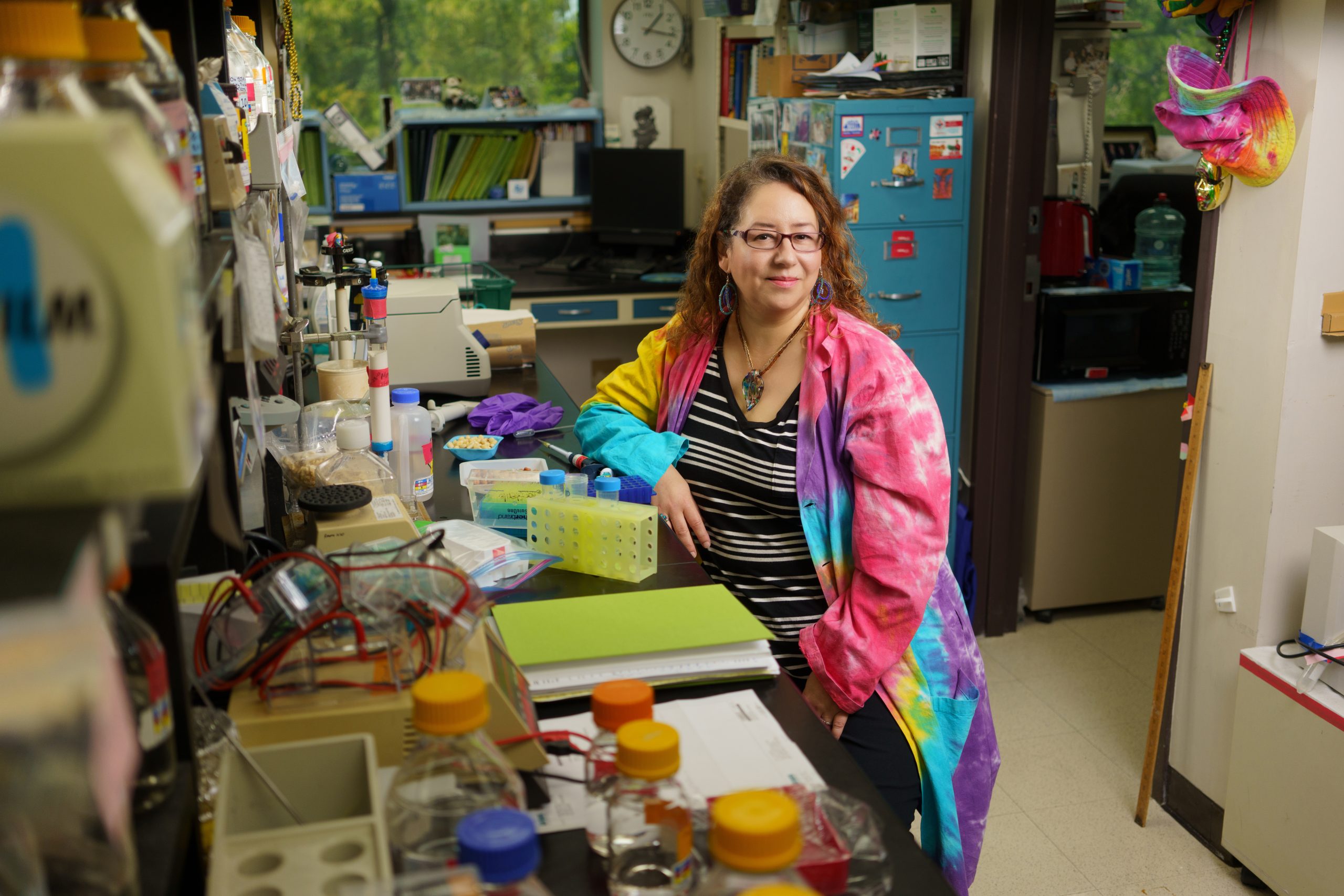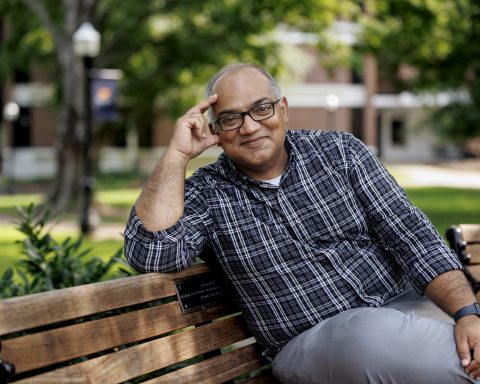For Soheila Maleki (‘91), with roots in both Iran and the U.S., food encompasses her professional life.
Maleki is a research scientist with the U.S. Department of Agriculture in New Orleans, where she studies food allergies and ways to reduce the severity of the problem.
“I’ve always been interested in the structure and function of allergenic proteins in food and how they interact with the immune system, as well as the effects of food processing on the allergenic properties of foods, in particular of peanuts,” she said. “A lot of my focus has been research on peanut allergies, and more recently, my team has expanded to look at tree nuts as well as other allergens such as shrimp, eggs and milk.”
Maleki said her path to studying food allergies wasn’t a straight line but featured a few twists and turns.
“My mother is from Illinois and my dad was from Iran, so after graduating high school in Iran, I moved to Tennessee for college. It was a bit of a culture shock,” she said.
Family friends lived in Millington, and their son had graduated from UT Martin, so they recommended it to Maleki. “I was fortunate to be accepted at UT Martin, she said. “I enjoyed the opportunity to get to know more people, and it was an intimate and friendly environment. I developed great relationships with the faculty and received more personalized attention, which was great.”
She earned her bachelor’s degree in chemistry with a minor in biology.
“My intention was to go to medical school, but after I took some biochemistry classes, I realized I wanted to go in a different direction.”
Maleki said she discovered a love for biochemistry during her time at UT Martin.
“The field just fascinated me,” she said. “I had to work hard to pass that first class since I also had two jobs, but I fell in love with the topic.”
Then a professor gave her the opportunity to assist in the biochemistry lab one summer.
“We were studying hemoglobin and metabolism levels in tadpoles, and I enjoyed it so much that I thought, ‘This is it; I want to do this kind of work,’ so instead of medical school, I enrolled in graduate school,” she said.
During graduate school in the Department of Biochemistry and Molecular Biology at the University of Arkansas for Medical Sciences, Maleki found her particular research area, studying the structure and functions of proteins.
“I was in Little Rock, I had just finished my Ph.D. and gotten engaged, and I didn’t want to leave town,” she said. “I knew that a professor just down the hall had started looking at peanut allergies. As it happened, one of my best friends was a graduate student, and she had a severe peanut allergy. That’s what piqued my interest, and next thing you know, I was hooked.”
She began a post-doctoral fellowship studying the proteins in peanuts that cause allergic reactions.
One question she often hears is whether the food allergy problem is getting worse or if it’s just a case of growing public awareness of the problem.
“The answer is it’s both,” she said. “Peanut allergy has actually tripled in the last few decades, going from 0.4% of the population having an allergy to more than 1.5% in the U.S. Most people now know at least one other person who has a food allergy, and that leads to increased awareness of the problem.”
The globalization of markets may play a role in this enhanced level of food allergies, Maleki said.
“Many years ago, we may not have ever seen a kiwi fruit, but now they’re everywhere,” she said. “The prevalence of food allergy is different in various countries and is somewhat dependent on their diet and environment. In the U.S., rice is considered hypoallergenic, but in Japan, rice is a serious allergy, particularly because it’s a staple of their diet.”
Another big food allergy in Asia is buckwheat, because it’s used to make soba noodles, which are prevalent in the diet.
“In the West, peanuts are a major allergy. The United Kingdom, Australia, Canada and the U.S. report the highest levels of peanut allergy, but in the Mediterranean, peanut allergies are at a very low level,” she said.
One main way to address the food allergy problem is by reducing food sensitivity in children.
“Here in the U.S., for many years, it was recommended that children should avoid peanuts and peanut butter until age 3 because of the choking factor. But, in the past few years, it has been shown that, if we were to introduce them at 4 to 6 months to infants that are at high risk for developing peanut allergy, we are likely to change the future,” she added that research has shown that early introducation of peanuts can reduce developement of peanut allergy by 80%. For children and adults who already have the allergy, oral immunotherapy can desensitize them “so that if they have an accidental exposure, they’re not going to end up in the emergency room.”
Another way to reduce food allergies is by changing the way foods are processed. Recently, it was found that food processing can make oral immunotherapy safer.
“For individuals with allergies to milk or eggs, it’s been shown that, if you bake the foods into a muffin, it makes it less dangerous and less painful than giving them a fried egg or a glass of milk,” she said. Oral immunotherapy must always be done under a physician’s supervision in a clinical setting rather than unsupervised at home, she said.
However, using a food for immunotherapy and marketing a hypoallergenic peanut product to the public are very different things.
“One of the problems is that, with food processing, it’s difficult for everyone in the industry to change all of their methods and equipment because, in the grand scheme of things, everything that happens to the peanut once it’s harvested can be considered processing,” she said. “You can change a few processes along the line, but the global food supply chain isn’t open to wholesale changes.”
Additionally, changes in the aroma, flavor and texture of food could lead to reduced acceptance by consumers, she said.
Maleki’s research has contributed to the development of the first food that has been characterized as a pharmaceutical. The product, Palforzia, is the first food to be approved by the U.S. Food and Drug Administration for treatment of a food allergy.
As a result of her research, Maleki was a finalist for the 2018 Samuel J. Heyman Service to America Medal, awarded by the nonpartisan nonprofit Partnership for Public Service. Known as the “Sammies,” the award highlights the work of U.S. federal employees.
Looking back, Maleki said she’s grateful for the opportunities she found at UT Martin.
“I’ve always appreciated the education that I got there,” she said. “I feel like I grew up in Martin because, when I arrived, I had just turned 18. It was such a blessing to go to school somewhere where you knew that people had your back.”








